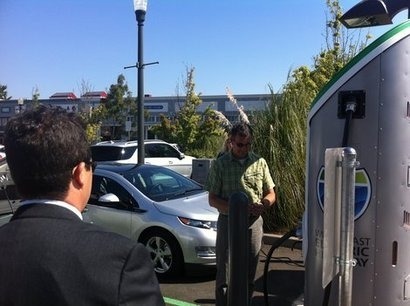
If the plan is approved, the project will be the largest deployment of EV charging stations in the US. The chargers would be located at commercial and public locations, including multi-family dwellings, retail centres, and workplaces. Around 10 percent of the chargers would be allocated for use by disadvantaged communities and PG&E would also provide tools and educational materials for site hosts and customers so that they can learn about the benefits of electric vehicles.
“Our proposed build-out of EV charging infrastructure aims to accelerate customer adoption of clean, quiet, and efficient plug-in vehicles by reducing lingering range anxiety” said Tony Earley, chairman, president, and CEO of PG&E Corporation. “It reflects our commitment to helping the state of California meet its critical clean air and greenhouse gas emissions reduction goals by promoting cleaner transportation.”
Mr Earley added that the project should create tremendous new opportunities for other infrastructure and technology companies while also helping to keep California in the forefront of EV innovation and creating new jobs in local communities across the Northern and Central areas of the state.
More than 60,000 plug-in EVs are currently registered in PG&E's service area, representing more than a fifth of all the EVs in the US. The Governor's Office has called for 1.5 million zero-emission vehicles in California by 2025 to help meet the state's ambitious goal of reducing greenhouse gas emissions 80 percent below 1990 levels by 2050. This means that PG&E will need around 100,000 Level 2 chargers in its service area by 2020.
All 25,000 stations would have Level 2 chargers installed in order to provide up to 25 miles of range for every hour of charging. Travel between metropolitan areas would be supported by installation of 100 DC fast chargers at key locations. These would be able to charge EV batteries in only 30 minutes. A growing number of these fast chargers are being installed along the West Coast Electric Highway, serving drivers along the British Columbia to Baja California route.
The chargers would be installed at no cost to the site host. PG&E would own the chargers but would contract third parties to build, install and maintain them and manage customer billing. The programme will take about five years to complete following approval by the California Public Utilities Commission. The cost would be shared by all electric customers as a contribution to helping the state meet its clean air and climate goals. A typical residential customer would pay about 70 cents more per month over the period 2018 to 2022.
PG&E currently has more than 1,200 electric-base vehicles in its fleet, and has been enthusiastically introducing new electric technology into its vehicles. The company was one of the first utilities in the country to offer money-saving rate plans for EV customer charging and it has recently announced a major smart-charging pilot program with automaker BMW.
For additional information:

